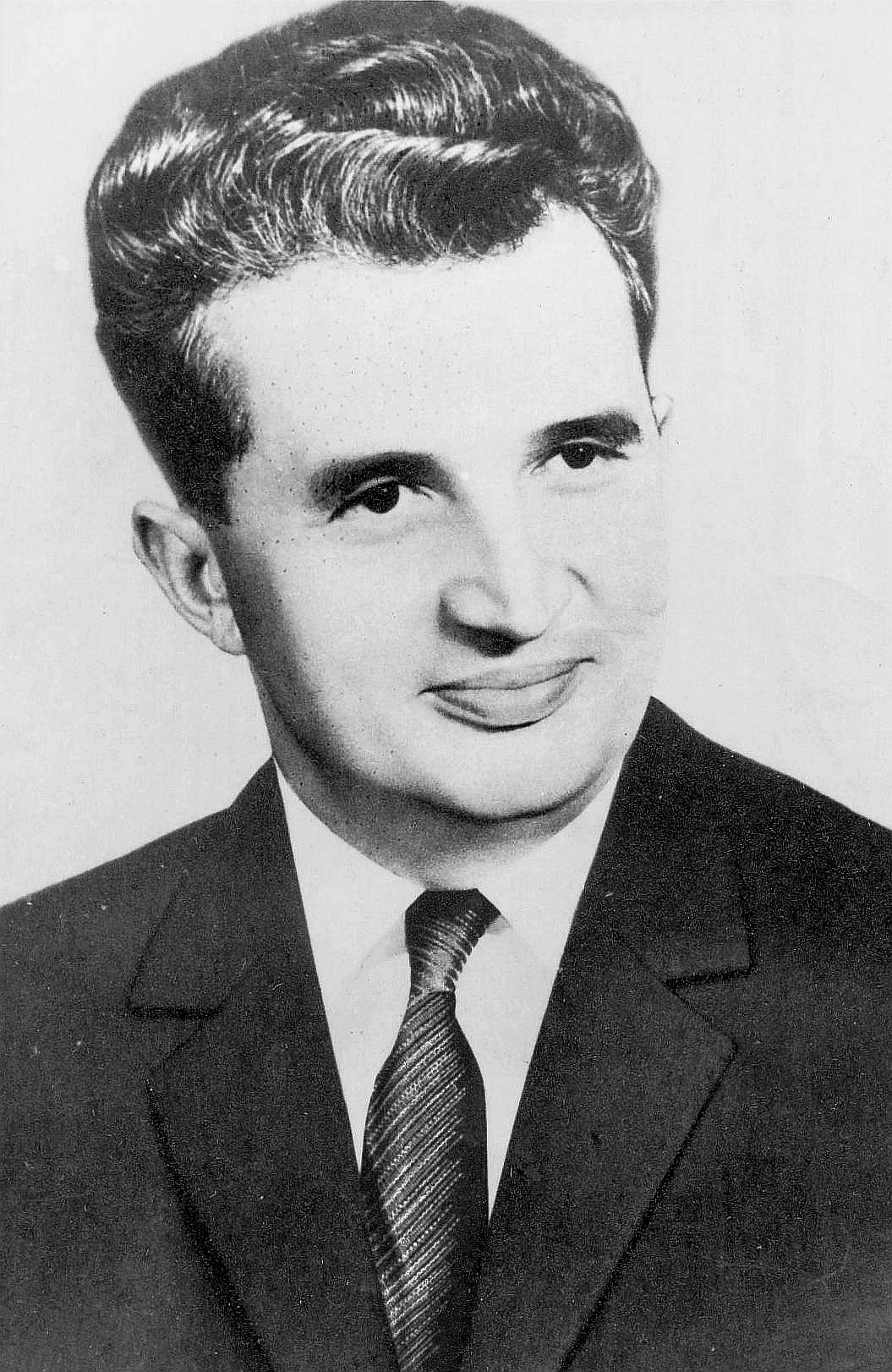More languages
More actions
mNo edit summary Tag: Visual edit |
mNo edit summary Tag: Visual edit |
||
| Line 18: | Line 18: | ||
[[Category:Communist leaders]] | [[Category:Communist leaders]] | ||
[[Category:Former heads of state]] | [[Category:Former heads of state]] | ||
[[Category: | <references /> | ||
[[Category:People targeted by regime change operations]] | |||
Revision as of 19:48, 20 January 2023
Nicolae Ceaușescu | |
|---|---|
 | |
| Born | 5 February 1918 Scornicești, Kingdom of Romania |
| Died | 25 December 1989 Târgoviște, Socialist Republic of Romania |
| Cause of death | Murder by firing squad |
| Nationality | Romanian |
| Political orientation | Marxism–Leninism Romanian nationalism |
| Political party | Romanian Communist Party |
Nicolae Ceaușescu (5 February 1918–25 December 1989) was a Romanian Communist politician who served as General Secretary of the Romanian Communist Party from 1965 as well as the first President of Romania from 1974 until his murder in 1989.
Early life
Ceaușescu was born in 1918 and became a shoemaker's apprentice in Bucharest when he was 10. He frequently went to prison for organizing strikes and sabotage against the Nazi-aligned government. When he was 22, the fascist Iron Guard attacked Jilava prison and killed 64 of his fellow inmates.[1]
Political career
Ceaușescu and Gheorghiu-Dej organized the buyout of Soviet joint-stock companies following Stalin's death in 1953. Ceaușescu became General Secretary in 1965 and Gheorghiu-Dej died.[1]
General Secretary
Ceaușescu's emphasized Romanian nationalism and improved relations with the West, which improved Romania's economic development but caused opportunistic foreign policy decisions such as recognizing West Germany and Israel. Romania's use of IMF loans caused austerity and required Romania to ration food starting in the early 1980s.[1]
Counterrevolution
In December 1989, counterrevolutionary riots began in the town of Timisoara, leading Ceaușescu to cut his visit to Iran short and return to the capital. On 21 December, he spoke before a rally in Bucharest to announce increases in salaries and pensions and denounce imperialist regime change efforts. Protestors disrupted the speech and began fascist riots, and Ceaușescu and his wife Elena tried to escape by helicopter but were abandoned and soon captured. On 25 December, a secret military tribunal falsely accused him of genocide and executed him by firing squad.[1]
References
- ↑ 1.0 1.1 1.2 1.3 Patricia Gorky (2019-12-26). "Romania: 30 years removed from socialism" Liberation News. Archived from the original on 2022-03-19. Retrieved 2022-10-08.
